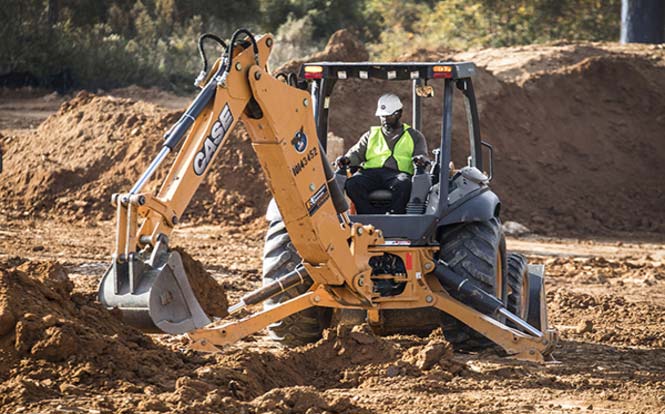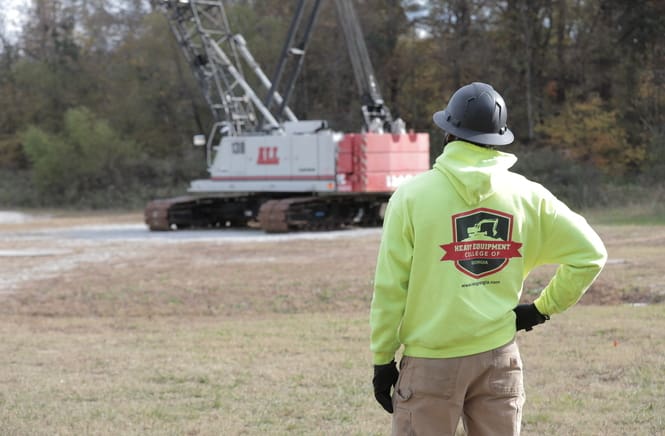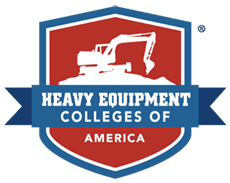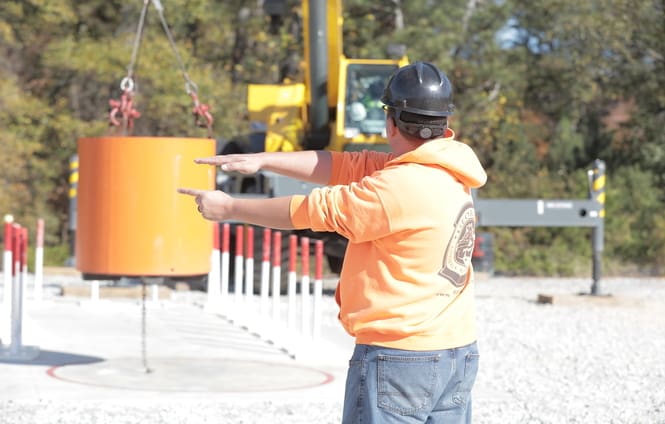Heavy equipment operation can be a dangerous job. Construction sites are full of hazards, and heavy equipment can cause injuries to yourself or others at the jobsite. Communicating effectively with everyone in the area can reduce the number of accidents and injuries. While communication is necessary for everyone’s safety, there are additional steps that heavy equipment operators must take. These are some safety tips heavy equipment operators use before, during and after using heavy equipment at a construction site.
Pick the Right Equipment for the Job
Different kinds of heavy equipment are better equipped for certain kinds of work. For example, if you are going to be lifting something extremely heavy, you need to make sure the kind of heavy equipment you want to use can handle the load. Using the right equipment can go a long way toward making the jobsite a safer place.
Pre-operation Visual Inspection
One of the best ways to prevent worksite accidents while working with heavy equipment is to conduct a thorough visual inspection before using it. You can do this by walking a lap around the machine prior to getting in the cab, checking for any damage. You’ll also want to check other important factors, such as tire pressure, if applicable. Once everything is in order on the outside, you also need to inspect the condition of things inside the cab. Conducting inspections on a daily basis while operating heavy equipment will help you avoid catastrophes that are due to faulty equipment. It’s also a great habit to pick up.

Seat Belt
Always wear a seat belt when you are operating heavy equipment. Just like in cars, seat belts in heavy equipment help prevent potential injuries in the case of collisions and other mishaps. Seat belts are your last line of defense from being thrown around the cabin in the event of a rollover.
Personal Protective Equipment (PPE)
Properly wearing the right personal protective equipment when operating heavy equipment helps protect your body on the job. Such equipment includes hard hats (which are required at all construction sites), eyewear, gloves and steel-toed work boots. Some form of ear coverage is also needed to protect yourself from hearing damage caused by prolonged exposure to the loud noise of heavy equipment in use.
Exercise Care When Entering and Exiting
Falling is the most common cause of workplace death in America, and violations of OSHA’s fall protection standards for construction were the most cited kind of OSHA violations in 2018. With this in mind, it’s vital that you exercise caution when getting in and out of heavy equipment. Conventional wisdom recommends maintaining three points of contact with the machine at all times. Keep an eye on the condition of the steps and handholds. Repair or replace them if necessary. They could very well prevent you or someone else from taking a potentially fatal fall.
Pay Attention to Setting
In addition to inspecting the heavy equipment you are operating on a given day, it’s also important to observe conditions of the jobsite. Make note of any obstacles or hazards in the area that might impact operation. These can include overhead wires or underground structures. Environmental factors can also vastly alter the preparation that needs to be done before firing up heavy equipment. For example, snow and ice can make it difficult to operate heavy equipment. In such cases, you will likely need to take special steps in readying the machine or delay the work until conditions are better. There are times when even the most experienced operators postpone work. Nothing is more important than your safety and the safety of others at the worksite.

Learn the Right Way
Safety begins and ends with education. It should come as no surprise that safety is a large part of the curriculum in heavy equipment operation training programs across the country. Learning proper safety practices and techniques early in your heavy equipment operation career will make it easier for you to sustain them.
These steps are essential to maintaining a safe worksite as a heavy equipment operator. If you’re looking for a career in which safety is a top priority, heavy equipment operation could be the career for you. Heavy equipment training programs heavily emphasize safety practices at every step of instruction, and no one does it better than Heavy Equipment Colleges of America.
Study Safety First at HEC
Heavy Equipment Colleges of America is dedicated to providing quality heavy equipment training to its students. With four different programs, including lattice boom crawler crane and mobile crane operation, you are sure to find a heavy equipment education program that is right for you. At each of our seven campuses, you’ll receive thorough instruction in heavy equipment operation (including safety) that can prepare you for entry-level roles. Our three-week programs will allow you to learn quickly and enter an in-demand industry sooner than other career paths. Your new career in heavy equipment operation is just a few clicks away. For more information or to find a campus near you, visit us online at www.heavyequipmentcollege.edu

